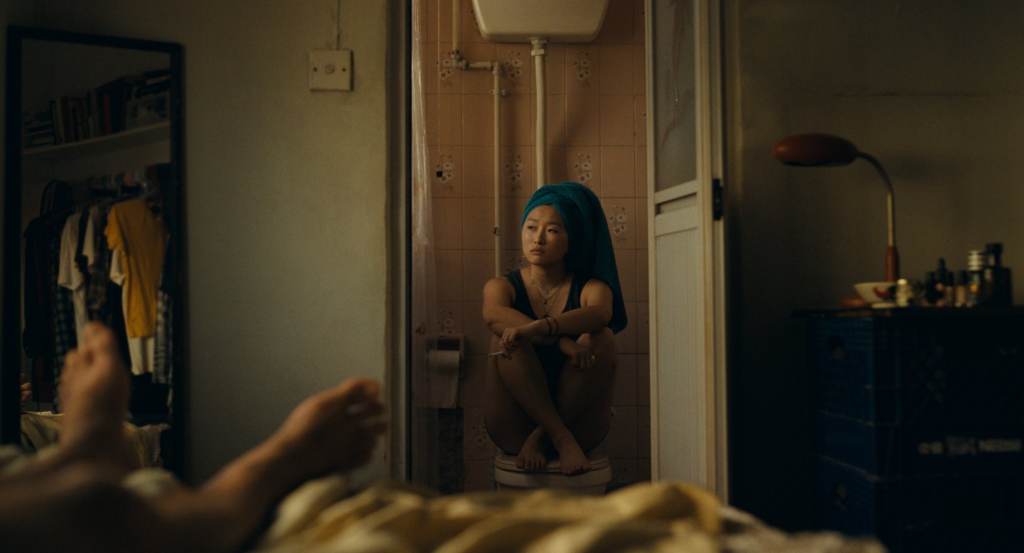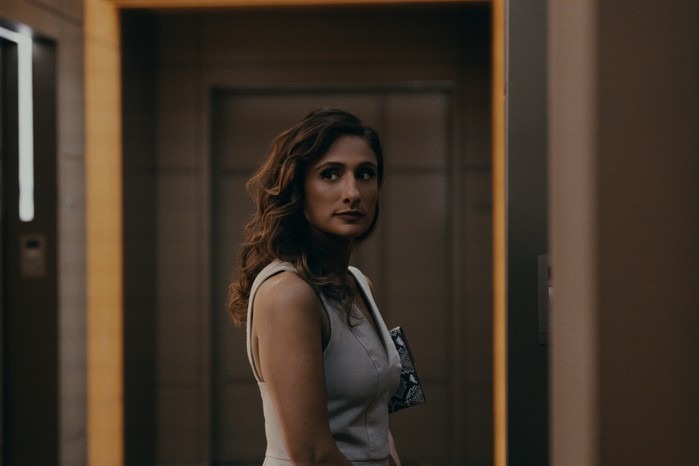Lulu Wang follows up the 2019 comedy/drama The Farewell with an adaptation of Janice Y. K. Lee’s 2016 novel about a group of expatriates living in Hong Kong in 2014.
Expats follows Nicole Kidman’s Margaret and Sarayu Blue’s Hilary as they navigate family life in a luxury high-rise apartment block. Then, audiences are introduced to Mercy, played by newcomer Ji-young Yoo, a free-spirited American-Korean looking for something other than helping the rich.
Mercy acts as a bridge between the world of the wealthy American expats and the Asian nannies and housekeepers who keep their households ticking. It takes a while for Mercy’s place in the overarching story to make sense, but she is the thread unknowingly holding all these people together.
The opening two episodes slowly introduce the audience to Margaret and Hilary. Although friends and neighbors, the two women are in very different stages of their lives. Margaret has given up her job to support his husband and family in Hong Kong. Hilary has maintained her high-flying career, putting her husband (Jack Huston) and starting a family second to her ambitions. Over the opening episodes, the layers of veneer behind the seemingly perfect lives of the lead women chip away.
Although Expats centres on a crime, Wang avoids any of the true-crime cliches associated with recent melodramas. She is more concerned with the emotions behind a tragedy and the guilt those connected feel. It’s not just the bereaved family whose lives are torn apart, it’s also the accused and the support network.

The fifth episode of Expats is a 96-minute exploration of the community of Filipino domestic workers (or helpers, as their wealthy employers call them). While the opening four episodes feature the staff in the background of the tragedy, this fifth episode puts them at the heart of the story. The show never fails to remind audiences that no matter how much these women sacrifice for their employers and no matter how they are described as one of the family, they will never fully be seen as equals. The fifth episode is easily the best in the series, putting EP Kidman into the back of her own story.
Although Kidman’s Margaret picks at the mystery that has torn her family apart, the show is more concerned with picking apart her psyche. Expats is at its best when it settles in the quiet moments between the big ones. What happens after the police go home and leave people alone with their own thoughts?

At times, it feels like Expats is balancing too many characters and too many plots. Not every thread gets the deserved time spent on it, and multiple characters don’t get the screen time they should. Although some things are purposely left unsaid, there are certain plots which deserve a better resolution. For example, Margaret’s husband, Clarke (Brian Tee), turns to religion in his time of need, much to his wife’s contempt. There is so much to explore about this topic, but Expats can only skirt the edges.
By setting the show in 2014, at the height of the Umbrella Movement, Wang can subtly explore the political tensions happening in Hong Kong at the time. While the show never fully addresses the influences of the Chinese Communist Party on the local government, threads of it can be found on news channels watched by characters and with the protests their expensive chauffeur-driven cars pass through. Wang has explained that the 2014 setting felt hugely important, as it’s considered an era where Hong Kong inhabitants felt hope and promise in their nation.
Hong Kong as a city plays a considerable role in the Prime drama. Cinematographer Anna Franquesa-Solano fully captures the juxtaposition of Hong Kong’s lush tropical forests in the middle of the smog-filled urban landscape. She captures the changing city, which is losing its traditions and slowly becoming more Westernized. The directors and writers worked with local habitants to ensure the world of Expats felt true to life.

Expats has a noticeably all-female writers’ room, including the source novel’s author, Janice Y.K. Lee. They make sure that all characters are portrayed as empathetic, no matter their mistakes and the cruelty of their actions. The subtle writing and nuanced performances stop the show from becoming too absurd whenever it progresses into melodrama.
Kidman delivers a masterclass of a grieving mother struggling to hold it together. Margaret slowly falls apart as events unfold; the more she tries to protect her family, the more she pushes them away. Blue, an actress better known for her comedic roles, does superb work as Hilary, who will follow in her mother’s footsteps, keeping a smile on her face no matter how tough her home life is. The scenes where Hilary confronts her mother and their long tradition of covering for the behaviors of men are some of the show’s best.
Despite the very specific setting, time period and characters, Expats strip these women of their social hierarchy. Despite their wealth and status, these women have relatable issues which most audiences will be able to connect with. Grief, childhood trauma, and marriage breakdowns can happen no matter the number in the bank account. Thanks to smart writing and subtle performance, Expats creates a layered portrayal of the multi-faceted tapestry of Hong Kong.
The first two episodes of Expats premiere on Prime Video January 26. After that, new episodes will air weekly.

![‘Expats’ Explores The Quiet Moments In A Family Tragedy [Review]](https://thathashtagshow.com/wp-content/uploads/2024/01/project_20240123_1100150-01-1280x640.png)



